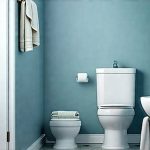The bathroom – for many, it’s the first room visited in the morning and the last before sleep. It’s often seen as a purely functional space, but our routines within it are deeply intertwined with our overall well-being and daily productivity. A seemingly simple routine can be a powerful indicator of how organized (or disorganized) we truly are. When bathroom routines become chaotic or rushed, frequently stemming from poor meal planning, the consequences ripple outwards, impacting not just our morning start, but also our stress levels, time management, and even our sense of self-care. It’s easy to underestimate the impact of these seemingly small moments, yet they collectively shape the tone for the entire day.
The core issue isn’t usually the bathroom itself, but rather a lack of intentionality surrounding how we use it. We often treat this space as an afterthought, a place to hurriedly complete necessary tasks before launching into the demands of the day. This reactive approach leads to rushed skincare, skipped steps in hygiene, and ultimately, a feeling of being unprepared and frazzled even before encountering external stressors. Recognizing that a well-planned bathroom routine is integral to a successful and balanced day is the first step towards reclaiming this often overlooked aspect of our lives. It’s about moving from reaction to proaction, creating space for mindful self-care amidst the daily hustle.
The Cascade Effect of Rushed Bathroom Routines
Rushing through your morning or evening bathroom routine isn’t just about losing a few minutes; it triggers a cascade of negative effects that extend far beyond the initial time constraint. Consider what happens when you realize you’re running late immediately after starting to get ready – stress hormones kick in, potentially leading to poor decision-making throughout the day. This heightened state can impact everything from work performance to interactions with loved ones. The feeling of being behind schedule follows you, creating a sense of perpetual anxiety.
Furthermore, consistently rushed routines often lead to neglected self-care practices. – Skipping moisturizing because there isn’t “time” – Using harsh products without proper consideration – Ignoring early signs of skin irritation or dental concerns – all become commonplace when time is perceived as scarce. This neglect may seem minor in the moment, but it accumulates over time, potentially leading to larger health and aesthetic issues down the line. The cumulative effect can erode your self-esteem and contribute to a feeling of being overwhelmed. Prioritizing even small adjustments to create a calmer bathroom routine is an investment in overall well-being. Understanding how routines impact stool texture can also be insightful.
Essentially, a chaotic bathroom routine isn’t merely symptomatic of poor planning; it is poor planning manifested physically. It’s a visible representation of a broader lack of organization and intentionality. The solution lies not in simply speeding up the process, but in restructuring our daily plans to accommodate mindful self-care within this critical space. We must recognize that dedicating time to these routines is an act of self-respect and a fundamental component of a healthy lifestyle.
Identifying Planning Weaknesses
The first step towards rectifying a chaotic bathroom routine is pinpointing the specific planning weaknesses that contribute to it. This requires honest self-assessment, looking beyond surface-level explanations like “I’m just not a morning person.” Often, the issue isn’t inherent personality traits but rather flawed organizational habits. – Are you consistently underestimating how long tasks take? – Do you fail to prepare items needed for your routine the night before? – Are you overcommitting yourself with too many activities, leaving insufficient time for essential self-care?
A helpful technique is time tracking. For a week, meticulously record how long each bathroom task actually takes – from brushing teeth and showering to skincare application. This data will reveal discrepancies between your perceived timeline and reality. You’ll likely discover “time leaks” where minutes are wasted on distractions or indecision. Alongside time tracking, analyze your overall schedule. Are you trying to cram too much into the morning? Is there room for flexibility if something unexpected arises? Identifying these weaknesses is crucial for developing targeted solutions. A loss of routine can also cause timing disruption.
Finally, consider what motivates the rush. Is it a fear of being late for work? A desire to maximize productivity at the expense of self-care? Understanding the underlying motivations will help you address the root cause and develop more sustainable habits. Self-awareness is paramount in this process. Recognizing these patterns allows you to move beyond simply reacting to chaos and begin proactively designing a routine that supports your well-being.
The Night Before: Proactive Preparation
One of the most effective strategies for streamlining bathroom routines is proactive preparation the night before. This minimizes decision fatigue and ensures everything needed is readily available, eliminating wasted time searching for items or making last-minute choices. – Lay out clothes for the next day – including workout gear if applicable. – Gather skincare products and toiletries – ensuring bottles are full and accessible. – Prepare any tools you’ll need – such as hairbrushes, makeup applicators, or dental floss.
This isn’t just about convenience; it’s about mental clarity. By reducing the number of decisions you have to make first thing in the morning, you free up cognitive resources for more important tasks and reduce stress levels. It also creates a sense of calm anticipation – knowing you’re prepared for the day ahead. Consider extending this preparation to other areas of your life as well, such as packing lunches or preparing breakfast ingredients. This holistic approach maximizes efficiency and minimizes morning chaos.
Furthermore, utilize technology to assist with planning. – Set reminders for bedtime routines that include pre-bathroom prep tasks. – Use a digital calendar to schedule dedicated time blocks for self-care – treating them as non-negotiable appointments. Proactive preparation is the cornerstone of a calm and efficient bathroom routine. It shifts you from reactive mode to proactive control, empowering you to start your day with intention and purpose. If family schedules are hectic, consider chaotic schedules impacts on routines.
Building a Realistic Routine Framework
A realistic routine framework isn’t about creating an elaborate or time-consuming schedule; it’s about designing a sustainable system that fits seamlessly into your lifestyle. Begin by prioritizing essential tasks – those non-negotiable elements of hygiene and self-care (e.g., brushing teeth, washing face). Then, allocate specific time slots for each task based on the insights gained from time tracking. Avoid overly ambitious goals or unrealistic expectations.
Instead of aiming for a perfect routine, focus on consistency. Even a short, simplified routine completed consistently is more valuable than an elaborate one that’s frequently skipped. Break down larger tasks into smaller, manageable steps. For example, instead of “skincare routine,” break it down into: cleanse, tone, moisturize, apply sunscreen. This makes the process less daunting and increases adherence. Remember to build in buffer time – unexpected events happen, and flexibility is key.
Finally, regularly evaluate your routine and make adjustments as needed. What worked last week may not work this week due to changing circumstances or priorities. The goal is to create a dynamic system that adapts to your evolving needs while consistently prioritizing self-care. A realistic routine framework isn’t about perfection; it’s about progress. It’s a testament to your commitment to well-being and a powerful tool for reclaiming control of your mornings (and evenings). Recognizing holiday food changes can help adjust expectations too. And be aware of how portion awareness impacts digestion and routine.


















